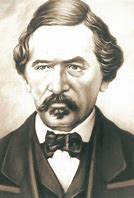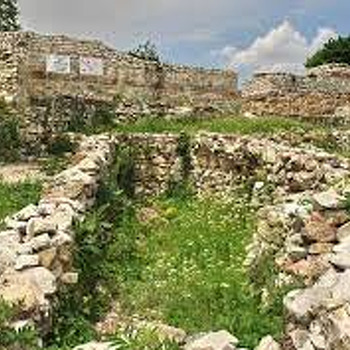House of Krastyo Pishurka
Overview
Krastyo Pishurka was born on August 24, 1823 in the town of Vratsa. He comes from a prominent Vratsa family with many writers in its history, hence the nickname Pishurka (writer, literary man). Under the guidance of her first teacher, Konstantin Ognyanovich, Pishurka continued her studies at the Sofia Hellenic-Greek-Slovene Bulgarian School, then at the Greek School in Plovdiv and the Greek High School in Kuruchesme (Constantinople). There he received an enviable education for his time and mastered a number of foreign languages.
Educated in a Greek cultural environment, Pishurka remains committed to his Bulgarian nature and affiliation. In 1847 he returned to his hometown of Vratsa and became a teacher in the oldest and most famous school in Vratsa - Ascension, setting himself the task of modernizing and expanding its activities. The Bulgarian applies the Greek methods of teaching, but in view of the needs of the Bulgarian children, by dividing his students into classes and introducing the class teaching. At the end of the school year, Pishurka successfully held the first public school exam in the city.
Despite the undeniable successes of the young and well-read Bulgarian, the Greek bishop Agapius in Vratsa began to feel threatened by the spread of Greek culture. During these years, the Greek clergy purposefully spread their writing and culture among the population and many Bulgarians began to feel like Greeks. The activity of the teacher disturbed Bishop Agakius and the clergyman, with his rights granted to him by the Greek Patriarchate of Constantinople, expelled Krastyo Pishurka from Vratsa.
When the Danube town of Lom learned of the fate of the teacher from Vratsa, the Lom leaders immediately sent an invitation to Pishurka to take the position of teacher in the newly built school there, which he accepted without hesitation.
Soon after the beginning of the school year, the Bulgarian teacher took the next big step in the development of the Lom school and the educational work in Bulgaria as a whole. Pishurka puts the inscription "Chitalishte" above the door of one of the school rooms. Inside, he personally arranges his own books in Bulgarian, French, German, Russian, Serbian and Greek, which are an undoubted sign of his encyclopedic literacy, and his work is an indicator of devotion and nobility.
Recommended
- Yaza Dam
- Ancient fortress Almus
- "Postoyanstvo" Culture Center
- Barge Museum of the September Uprising;
- Cathedral of the Dormition of the Mother of God
- Church of St. Nicholas the New
- Kovachitsa Dam
- Komoshtitsa Dam
- Museum of History


 Bulgarian
Bulgarian Romanian
Romanian

